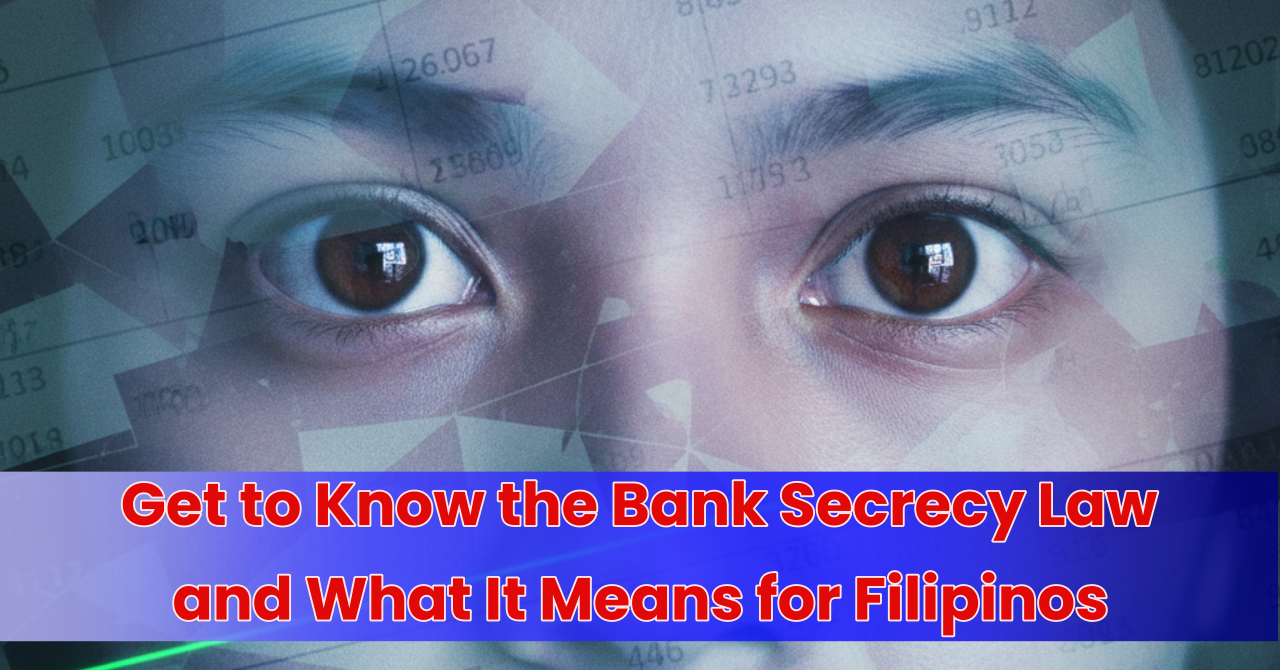For decades, the Philippine Bank Secrecy Law (R.A. No. 1405) stood as a symbol of financial privacy. It was meant to assure every depositor that their money was safe and their account information protected. But times have changed. In a world fighting corruption, cybercrime, and tax evasion, the same law that once protected citizens is now being questioned for shielding wrongdoing and slowing down financial oversight.

What the Bank Secrecy Law Covers
Passed in 1955, Republic Act No. 1405—known as the Bank Secrecy Law—makes all peso-denominated deposits in Philippine banks strictly confidential. Nearly two decades later, R.A. 6426 extended the same privilege to foreign-currency accounts, reflecting the country’s growing international banking ties.
Protected accounts include:
- Savings, checking, and time deposits – whether personal or corporate.
- Government-issued bonds – such as treasury bills or certificates.
The guiding rule is simple: no one, not even government authorities, may examine a person’s bank records without permission or legal basis. This policy was built on trust—encouraging Filipinos to save by guaranteeing privacy.
Exceptions to Confidentiality
While R.A. 1405 ensures confidentiality, it also recognizes that some cases require access to bank data. Deposits may be opened or examined only under these limited circumstances:
- Written consent of the depositor – The account holder must give clear authorization.
- Impeachment proceedings – When bank documents are relevant to a public official’s accountability.
- Court order – Only when investigating bribery, dereliction of duty, unexplained wealth, or money laundering.
- Estate-tax investigations by the BIR – To verify the assets of a deceased person.
💡 These narrow exceptions show how heavily the law leans toward protecting privacy rather than exposing misconduct.
Why the Law Is Controversial
Over the years, this protection has turned into a double-edged sword. While ordinary citizens benefit from confidentiality, criminals and corrupt officials often use it to hide illicit funds.
- Haven for wrongdoing. Strict secrecy allows corruption, tax evasion, and money laundering to slip through cracks.
- Delayed investigations. Agencies like the Bangko Sentral ng Pilipinas (BSP) and the Anti-Money Laundering Council (AMLC) need a court order before viewing suspicious accounts—by the time approval arrives, the money is often gone.
- Global scrutiny. The Philippines remains one of the few countries maintaining such absolute secrecy. International partners, including the IMF and World Bank, see this as a barrier to financial transparency and foreign investment.
In short, the law’s strength in privacy has become its weakness in accountability.
Push for Reform (2025 Updates)
Growing calls for reform aim to balance the citizen’s right to privacy with the government’s need for oversight. Several measures now seek to modernize the law:
- House Bill No. 7 – Proposes granting the BSP and AMLC direct access to bank records when there is probable cause, speeding up investigations.
- Presidential support. President Marcos Jr. backs a bill that would require all government officials to waive bank secrecy upon assuming office, promoting integrity.
- AFASA (Anti-Financial Account Scamming Act). This new law already authorizes the BSP to investigate accounts linked to cybercrime and online fraud.
- Economic perspective. Business groups and financial experts stress that transparency reforms would strengthen the country’s compliance with global standards—attracting investors wary of hidden risks.
Together, these proposals mark the first real shift in decades toward a system that prizes both privacy and accountability.
What’s at Stake
If R.A. 1405 stays untouched, the consequences reach far beyond banks:
- Financial stability. Without timely oversight, illicit transactions can weaken trust in the entire banking system.
- Investor confidence. Foreign investors seek transparency; secrecy breeds hesitation.
- Anti-corruption efforts. Investigators need faster access to trace stolen or misused public funds.
Reform is not about exposing honest citizens—it’s about closing the loopholes that allow corruption to hide in plain sight.
How It Affects Everyday Filipinos
For most depositors, the reform debate might seem distant, but its outcome touches daily life. A stronger financial monitoring system helps:
- Protect savings from fraudulent transfers or hacked accounts.
- Ensure safer digital banking as more transactions move online.
- Support fair taxation by holding everyone—rich or poor—to the same standard.
When trust in the system improves, so does the stability of our money, our remittances, and even government services funded by honest tax collection.
Looking Ahead: Privacy vs Transparency
The Bank Secrecy Law was born in an era when record-keeping was manual and corruption harder to trace. Today’s digital world is different—funds move across borders in seconds, and illicit networks can hide behind encrypted transfers. Maintaining the same level of secrecy no longer guarantees safety; it can invite abuse.
The challenge for lawmakers is to redefine privacy in a way that respects personal rights while enabling institutions to act quickly against wrongdoing. Reform doesn’t mean abandoning confidentiality—it means updating it for a modern economy where transparency protects, not threatens, the common good.
Final Thoughts
The Bank Secrecy Law once stood for trust between citizens and banks. Now, it tests our nation’s trust in accountability itself. As reforms take shape, one question remains: can we preserve individual privacy while building a system honest enough to protect everyone?
Real transparency isn’t about exposing people—it’s about ensuring that every peso works for the Filipino who earned it.
